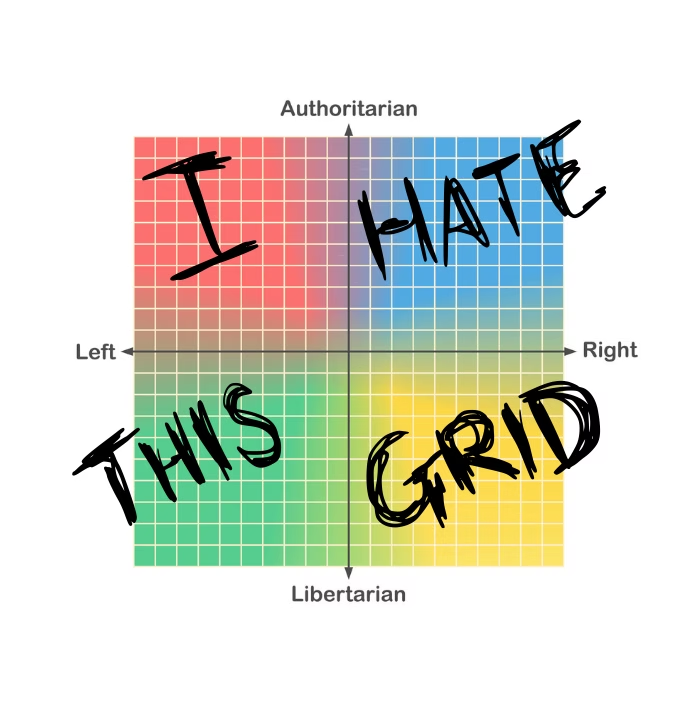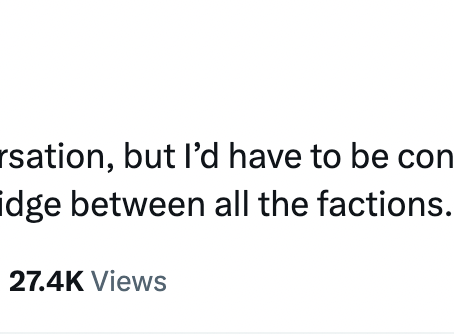On Expulsion
By Tom Rowlette
Hello Libertarians. This is the first of a series of opinion articles I’ll be privileged to write for you once per month on an “inside baseball” topic for the Libertarian Party. I encourage everyone who has an opinion on whatever we’re talking about this month to write in to The Torch, and maybe have your opinion on it published too.
Recently I have seen people from both of the major factions in the LP suggest that someone – always someone in the opposing faction – ought to be expelled.
In the more than fifty years of the national Libertarian Party we have never expelled or removed someone from our membership. There have been Libertarians who have committed every type of crime, and there have been Libertarians who have espoused every kind of policy opposed to the Statement of Principles, and yet nobody has been kicked out.
Why not?
There are reasonable arguments to be made about expulsion from a philosophical perspective, but most of the reasons that a process doesn’t exist to expel members are practical. If you add up all of the benefits which would be gained from having it and weigh them against the disadvantages, it’s clear that it’s far worse to have it around than not.
I don’t want to write (and you don’t want to read) a paragraph about every negative consequence going through expulsions would have on the party. Instead, here’s a brief list:
- Expulsions would almost certainly have to be reviewed by the Judicial Committee. If you think that we have too many appeals and that the committee is overworked now, imagine what it would be like if they had to go over every person appealing their expulsion.
- Everyone who has to vote on whether to expel a member from a society feels a little bit dirty after taking that vote, even if the original behavior was terrible.
- Mostly, expulsions procedures are driven by a desire for vengeance. After it’s over, will anyone actually feel satisfied by it?
- We have life memberships in our party, which from the very beginning has meant that you’re in the LP in a way that can’t be revoked. If we started this new policy, regular and life members would likely have to be treated differently, which would be unfair.
- It would be very difficult to write a policy about what behavior merits expulsion and what behavior does not. If you doubt that, give it a shot – try writing that policy or bylaw and end up with it not being either way too long or way too vague.
- Expulsions take time and energy, things we ought to spend on something productive instead.
- What happens when a bunch of people are expelled the day before a national convention? Can you say “lawsuit”? Seems expensive.
- Expulsion leaves no room for redemption. It happens very rarely, but I have seen (one time) someone come back after years have gone by and be helpful and friendly again after a disgrace.
- There is already a breakaway party – the Liberal Party – in the libertarian movement. History tells us that fracturing into different organizations is generally terrible for any philosophical or political cause. If enough people are expelled we will have more of that.
- Finally, expelling someone is not a positive step forward on any path towards our concrete goal of electing more Libertarians.
On top of all of that, expulsions would certainly be used as a weapon in the caucus wars. Can anyone doubt that one faction or another would not see this as a useful tool to cement a temporary advantage? Is there any way this would not be abused? How many of us who are active in the internal workings of the LP would not have been expelled at one time or another for disagreeing with the majority opinion or having the wrong friends?
So put all of those problems and all of those questions on the negative side of the scale, and let’s weigh them against the positive things we might expect.
There are only two things to be gained from having an expulsion policy. One is that it’s supposed to “send a message” to the outside world about what kind of people we are, and the other is that it’s supposed to remove toxic people from our midst. It would do one of those things poorly, and the other one not at all.
First, nobody in the general public expects us to purge people from general membership who are obnoxious or offensive. None of the other major parties do that; it’s enough for that person to be removed from a leadership position or from a candidacy. The only message that the outside world would receive if we expel somebody is to remind them of the bad behavior.
The other thing expulsion is supposed to do is to remove people from the organization who are toxic to its mission. Maybe. It is possible that there would be that positive effect. It’s also possible that the toxic person goes off into the wilderness and tells everyone who will listen that they’re the “real” libertarian and causes problems from that direction, but maybe they’ll just quit and stop being irritating.
Nope. That’s not good enough. There is not nearly enough good produced by this policy to outweigh the harms it would cause. Besides, there’s a better way.
Everyone who wants to be a member can be a member, as long as they’re willing to sign the following promise:
“I certify that I oppose the initiation of force to achieve political or social goals.”
If you want to do more than that, if you want to represent us to the public as an officer, as a candidate, or as a social media manager, those are privileges that can be taken away. But everyone in the world who opposes the initiation of force is welcome to be a member of the Libertarian Party.



